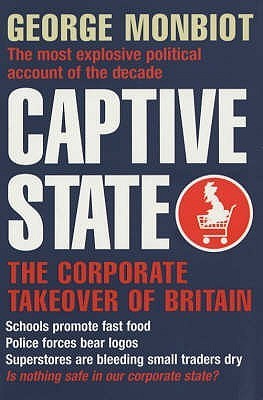
When Corporations Rule the World
Book Description
Corporate giants loom large, wielding power that shapes lives and landscapes across the globe. In "When Corporations Rule the World," David C. Korten unveils a chilling reality where profit eclipses human dignity and the environment crumbles under relentless greed. With each turn of the page, the reader is thrust into a battle between corporate might and the call for a sustainable, just future. Heart-pounding revelations expose the fragility of democracy and the urgency of reclaiming power. As societies teeter on the brink, the question looms: can humanity wrest control from the hands of a few before it's too late?
Quick Book Summary
"When Corporations Rule the World" by David C. Korten is a deep investigation into the growing power of transnational corporations and their impact on society, democracy, and the environment. Korten argues that the unchecked rise of corporate influence distorts global economies, undermines local communities, and accelerates environmental destruction. Through compelling examples, he exposes how international institutions and policies favor corporate interests at the expense of people and the planet. Korten contends that this concentration of power erodes democratic values and widens global inequality. Incorporating both critique and hope, he suggests pathways towards a more just, sustainable world—one where economic systems prioritize human and ecological well-being over profits. Ultimately, the book is a call to action against the commodification of life and a blueprint for reclaiming democratic control.
Summary of Key Ideas
Table of Contents
The Corporate Rise to Global Dominance
Korten begins by examining the historical evolution of corporations from local business entities to transnational giants. He describes how deregulation, trade liberalization, and the growth of global markets have enabled corporations to transcend national laws and pursue profit without corresponding accountability. This shift, according to Korten, has led to unprecedented concentrations of economic power, giving corporations vast influence over policy, culture, and daily life across the globe.
Market Fundamentalism and Its Social Toll
A central theme of the book is market fundamentalism—the belief that free markets and private enterprise inevitably produce the best outcomes for society. Korten argues that this ideology is deeply flawed, as it ignores the social and environmental costs of unregulated market activity. He provides case studies of how corporate-driven policies result in job losses, wage suppression, diminished social safety nets, and heightened inequality, particularly in developing countries. The focus on short-term shareholder value often comes at the expense of community welfare and social stability.
The Erosion of Democracy and Community
Korten delves into the ways in which corporate power undermines democratic institutions and the fabric of community life. By influencing political processes through campaign financing, lobbying, and the "revolving door" between business and government, corporations often set national and global agendas. This results in policies that serve narrow economic interests, rather than the public good, and erodes citizens’ faith in democracy. Meanwhile, global financial institutions like the IMF and World Bank often reinforce this imbalance by pressuring countries to adopt business-friendly reforms.
Environmental Consequences of Corporate Power
Another major concern Korten raises is the environmental degradation accelerated by corporate practices. He points to rampant resource extraction, pollution, and agricultural monocultures as evidence that the pursuit of profit frequently overrides ecological stewardship. Korten argues that the commodification of nature and relentless consumerism threaten planetary systems, making urgent the need to realign economies in harmony with ecological limits.
Pathways to a Just and Sustainable Society
Despite these challenges, Korten ultimately offers hope by outlining principles and pathways for transformative change. He advocates for strengthening local economies, reshaping global institutions to curb corporate excess, and promoting values of cooperation and sustainability. Grassroots activism, democratic reforms, and a renewed ethic of stewardship are proposed as essential strategies for reclaiming power from corporations and restoring balance between economic activity and the needs of people and the planet.
Download This Summary
Get a free PDF of this summary instantly — no email required.





